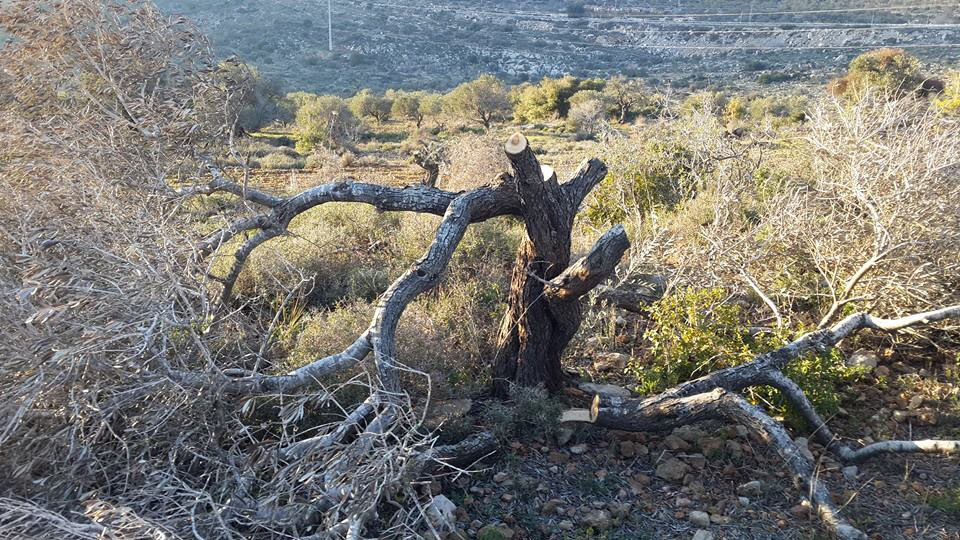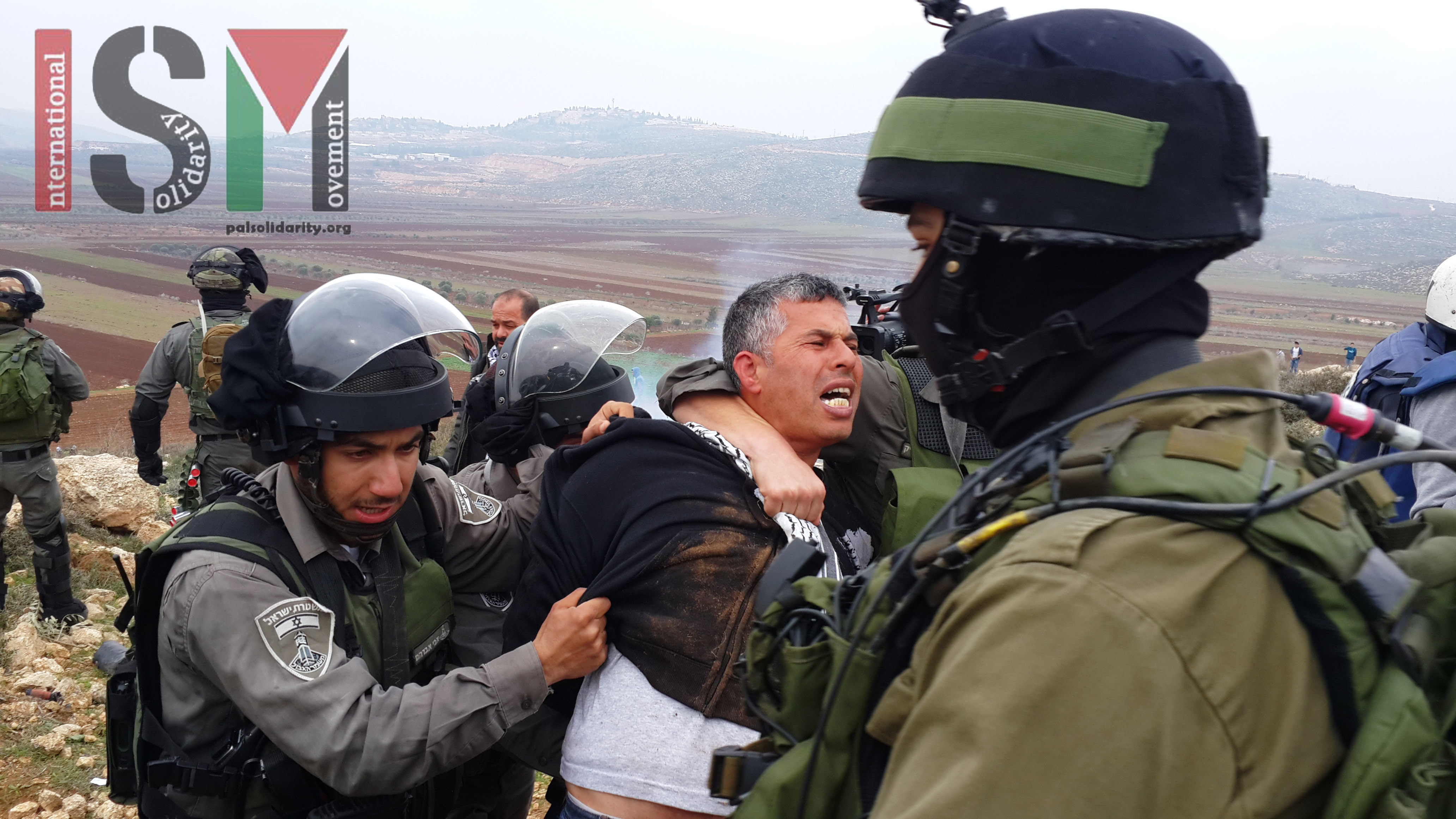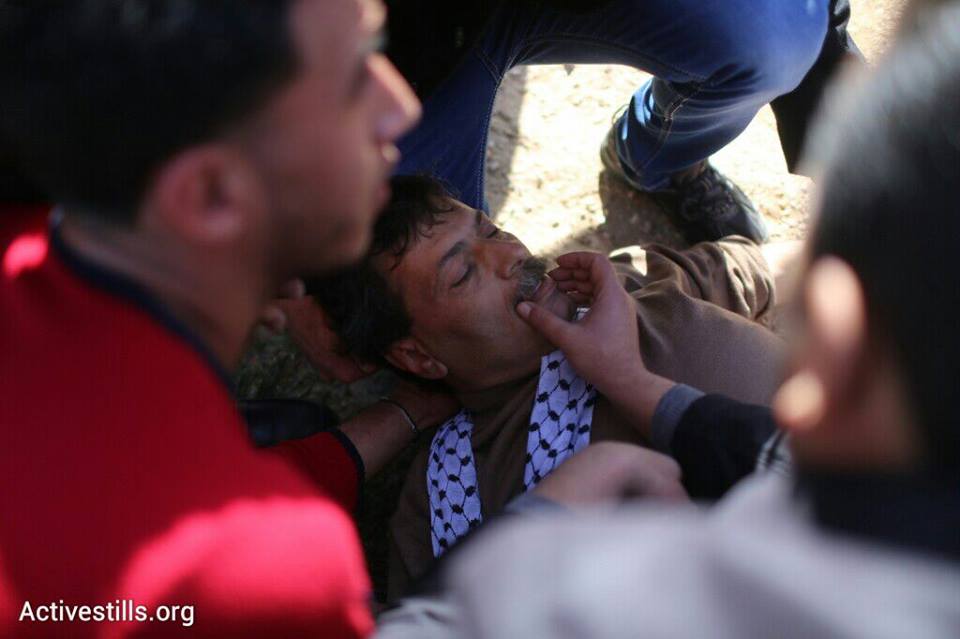Tag: Olive Trees
-
VIDEO: Olive trees destroyed in Yasuf
13th January 2015 | International Solidarity Movement, Nablus team | Yasuf, Occupied Palestine On Monday, January 11th, a farmer in Yasuf went out to see how his land had weathered during the recent storm and saw that a large number of olive trees in neighbouring plots had been cut down to their trunks. He immediately alerted…
-
UPDATED: Palestinians continue the struggle against the Adei Ad outpost
20th December 2014 | International Solidarity Movement | Turmusaya, Occupied Palestine Update 22 December: Palestinian activists Mohammed Khatib and Jaffar Hamayel, both arrested on December 19 while peacefully demonstrating in Turmusaya, were released today, December 22, on bail of 7500 shekel each. ***** Hundreds of Palestinian children, women, and men gathered at Turmusaya on Friday December…
-
Israeli soldier kills PA minister at non-violent protest
11th December 2014 | International Solidarity Movement | Turmusaya, Occupied Palestine Yesterday, an Israeli soldier killed Palestinian Authority (PA) Settlment minister, Ziad Abu Ein, at a non-violent demonstration in the village of Turmusaya. ISM spoke to Abdallah Abu-Rahme, coordinator of the Bil’in Popular Committee and present at the demonstration yesterday. “Yesterday was International Human Rights…



